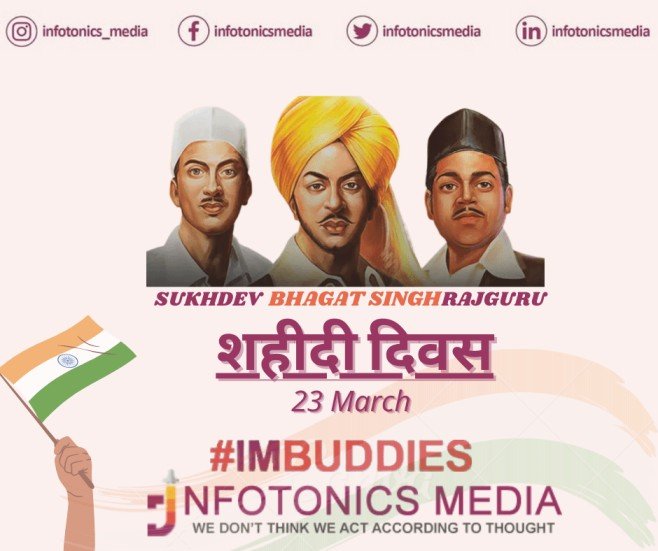
Shaheed Bhagat Singh: Remembering a legacy of sacrifice and fight for injustice
On 23rd March Shaheed Bhagat Singh is the epitome of courage, sacrifice, inspiration, and intellect. There were not just one but many shades to the charisma of that young patriot who is often invoked by leaders of the political landscape today. His shallow idolization as a mere nationalist is not tantamount to paying absolute homage to his legacy. The ideals which he fought for were much deeper and seek a deeper inquiry. His fight was not only against the British oppression but the injustice and inequality as can be evinced from the plethora of social and political writings which he wrote on the subjects of issues like caste, communalism, language, and politics which are as contemporary today, if not more. He was not just a man of great courage who made the ultimate sacrifice at the prime of his youth, but a man of exemplary intellect and spirit of inquiry as corroborated also by Lal Bahadur Shastri who met him at Lahore’s Dwarka Das Library.
Bhagat Singh was sentenced to death at the mere age of 23. But by that time, he had made such a work of art that it still serves as a guiding principle for everyone seeking inspiration from it. Bhagat Singh was a firm believer in the concept that revolutions occur when ideas are de, practiced, and argued – as he had written: “The sword of revolution is sharpened on the whetting stone of ideas.”
We must look to his writings and the vast stretching literature he left on various issues to get a leaf of inspiration from his life.
Secularism was one of the foundations of the belief system of Bhagat Singh. Bhagat Singh abandoned religion, religious ideas, and ideology, and explained why in his book Why I Am an Atheist?
On matters of religion, he wrote that “All religions and creeds are the props of tyrannical and exploiting institutions, men and classes”. He staunchly favored that the current generation must remove the appendages of religious beliefs and have faith in its own ability to achieve the goal, rather than relying on the tell-tale signs and symbols of religious practice to serve as a guide to wade through the byzantine maze of life.

He had sheer conviction in the strength of ideas. He believed ideas must not only be expounded but proliferated widely. The employment of posters and theatre to communicate with the broader public is especially important here. While this may have less appeal to today’s generation, if we truly want to grow and expound an idea, there is no better approach to bring significant topics into the public realm, as issues of significance are being pushed to the periphery. To attract attention to societal concerns in the most efficient way possible, one must employ one’s imagination, was his stance.
He hated his contemporary youth being content in a state of comfort and wanted to preach to them to learn to thrive in chaos because that’s how revolutions are brought. We have acquired a syndrome of being happy and cheerful in an orderly life that should not be disturbed at any cost. However, it has effectively rendered our thought process null and void. It is often instructive to paraphrase Bhagat Singh in order to renew and resurrect it:
“In general, people become acclimated to the established order of things and begin to shudder at the mere prospect of change.” This sluggish spirit must be replaced with a revolutionary spirit. Otherwise, deterioration obtains the upper hand, and reactionary forces lead the entire human race astray. Such a state of affairs stifles and paralyzes human growth.”
This is not all. Bhagat Singh’s range of intellect would rather have you astounded. However, it all depends on what we do with his intellectual legacy, whether we study and analyze it or casually disregard it, as most of us have done for years. On the anniversary of the day he laid his life for the principles he believed in, we shall return to this image as our greatest homage to him.


I just added this web page to my bookmarks. I really like reading your posts. Thank you!
Comments are closed.